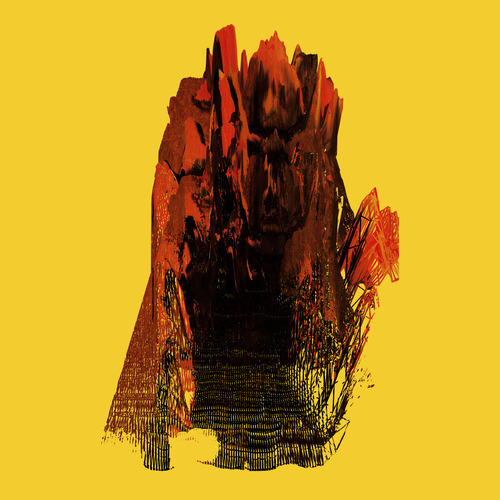We’ve been big fans of New England-based, Polish-born producer Derek Piotr for a while now, having previously featured his collaborative album with Paul Heslin and his last album, the layered and spiritual Tempatempat. Piotr has been hard at work on a new album, entitled Bahar, and was kind enough to answer a few of our questions about it.

The new album sees you take a different direction to previous release Tempatempat, it seems a lot more focussed and direct. Is this the result of a conscious effort to do something different? Or is it simply the evolution of your musical career?
This was deliberate. I had felt it was time to take the reigns a bit in regards to my music and I wrote 9 songs and endlessly worked on them until they reached their final forms. This is different from how I normally work, usually with no set outline, and when a song is done it is done, and I can move on. For Bahar I knew early on it would be 9 tracks. Not sure how I knew this, the number just felt right. Some of the songs like ‘Tone Offering’ or ‘Tennis’ went through
literally forty-fifty versions. It was a somewhat nerve-wracking process but ultimately very rewarding. Perhaps I’ll continue to work this way in the future.
Was this increase in focus/structure an attempt to make your music a little more approachable? To me this seems apparent not just in terms of your beatwork but also in terms of your vocals and their lyrical content.
I definitely focused more on Bahar as pop songs, and tried to include memorable choruses. Also on Tempatempat, the vocals are very woven and a part of the texture, which can be exhausting/burn out the mind, so for Bahar I wanted a clear delineation of vocal foreground and instrumental background, with very little vocal doubling and extremely blunt beats. I think my processes are pretty intricate and personal regardless of what I do, so striving for simplicity and accessible structure still resulted in some odd shapes.
Your previous albums felt organic and intuitive, but on Bahar you have returned to your formal musical education. Why have you decided to make this shift now? And why have you refrained from drawing upon your education until now?
I was burnt out on music theory after leaving school, and I felt that instead of trying to pull something out of me, the school was trying to shove all of these “shoulds” into me. So I completely left it behind when I started my solo work. The original blueprint for my solo material was no instruments allowed: voice and samples only. Slowly I began to include instruments, and, with this record, ended up scoring for woodwinds: clarinet, oboe, flute and bass clarinet. It is extremely rewarding to create something going purely with the flow and intuiting what should happen, but it is equally satisfying to compose something that can be replicated exact.
Like with Tempatempat, the album title is open to interpretation, with multiple meanings depending on the language it is translated into. Is this more than a coincidence, and if so, what interests you in this duality of meaning?
I think it’s an attempt at universality. I try and pick a word that means more than one thing always. With this record, I had a lot of Turkish/sufi music in mind at the outset and it wasn’t until later I was on wikipedia and I realized the clarinet has a significant role in turkish music. Up until that point my inspiration had largely been flute/drum pieces (which most clearly influenced ‘Sunlight, Fruit Trees’). The synchronicity there was rewarding, I don’t think of it as a coincidence, more as mystical reinforcement from the universe.
[soundcloud url=”https://api.soundcloud.com/tracks/193923604″]
Bahar can be translated into both Turkish and Maltese, while previous releases have had titles in English, Polish and Hindi. How do you achieve this global inspiration? Do you find yourself listening to music from a wide variety of countries/cultures? And is travel something that is important to your music?
I have been listening to music across the globe from a young age, everything from Oumou Sangare to Oud music to Chinese opera, so I’ve always been very open to scales and tones beyond what western civilization offers. More often than not the music is much more chromatic, and for me, more personally enriching.
Finally, could you list five bands or artists who you have been enjoying recently?
Michael Burns, A-Symmetry, Tyondai Braxton, Yoko Ono, Nat Baldwin
Bahar is due for release at the beginning of May on Bit-Phalanx. We’ve been lucky enough to hear a promo copy and can confirm it’s really good, so stay tuned for pre-order details.

